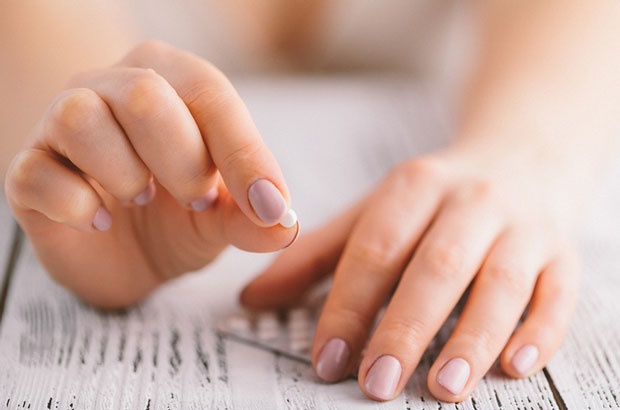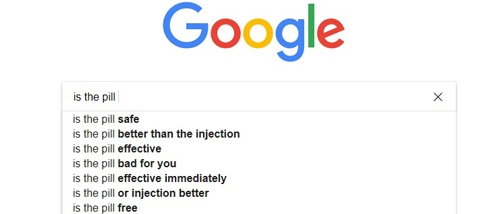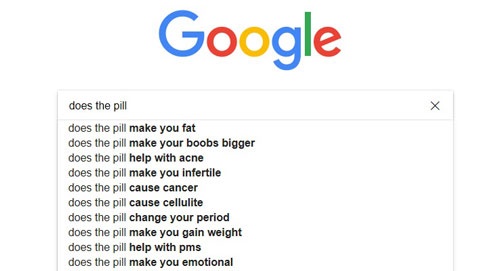
No parent wants to think about the fact that the baby who used to depend on them for everything is now growing into a young adult, but there's no stopping mother nature.
Given that the legal age of consent in South Africa is 16 years for both boys and girls, and that it is not legally criminal for children between the ages of 12 and 16 to have sex within their age group, it's best not to prolong educating your tween about sex.
And where there's sex, there must be contraception
Parent24 published a comprehensive guide to contraception, which you can read here:
But, like a lot parents of teens, you may be considering (or might even have been getting hints to consider) the pill as an easy way to introduce your teen to the world of birth control.
The Pill has been around since the 1960s and remains a steadfast choice for around 10.9% of South African women between the ages of 15 and 49.
Chances are you'll be consulting Google for some insight, so we took the liberty of looking at its autocomplete search options when typing in the words "is the pill..." and "does the pill..." to find the most common questions about oral contraception on the web.

Also see: Sex: Does your teen know it all?
We sent out a call to South African experts to answer these FAQs for you, with a specific focus on teenage users, and got some answers from Dineo Moerane, marketing and communications co-ordinator at Marie Stopes South Africa.
Is the pill safe?
Yes, the pill is safe. It has been around for more than 50 years and most people have been using it without experiencing major problems.
Is the pill better than the injection?
Choosing a contraceptive method is a woman’s personal choice that is dependent on issues such as age, health, the effectiveness of the method and a woman’s history of contraceptive use. Both the pill and the injection are very reliable methods of contraception when administered correctly. They both have their benefits and important factors to consider. The pill is best for women who are seeking a reliable, easy-to-use method; who are not smokers, obese or over 35. The injection is best for women who prefer not to take a daily pill but want a short-acting method.
Is the pill effective?
The pill is one of the most reliable contraceptive methods. Research has found that the pill is 91.99% effective in preventing pregnancy when used correctly (taking the pill at the same time every day, not missing a dose and using other contraception methods when taking medication such as antibiotics that can interfere with the pill). 92% isn't 100% though so there's always the chance of a pregnancy.
Is the pill bad for you?
Like most medication, the pill comes with some side effects such as vomiting and diarrhoea, and the use of certain medication can impact effectiveness. It may also cause spotting or irregular periods, headaches nausea, skin problems or increased appetite.
Is the pill effective immediately?
The only time the pill works immediately is when it is administered within 5 days of your period. But if you start the pill cycle any other time, then you need to take it for 7 days straight before it is effective. Therefore, it is advisable to use another form of contraception until you are fully protected.
Is the pill free?
The pill is free at government facilities.
Does the pill make you fat?
Experts say it depends on your unique biochemistry. There’s no way to predict which you will be: a woman who gains weight, a woman who maintains her weight, or a woman who loses a few kilos. There are indeed many instances of women whose weight has remained the same or even dropped a little when using hormonal contraceptives.
Researchers have explored whether hormonal birth control makes it more likely to get bloated or hungry. Their findings show that there could be an increase in appetite when women are on a hormonal contraceptive, but this is something that can be managed through a healthy diet and exercise.
If you’re concerned about your weight, ask your doctor or clinic about your ideal weight and healthy, sustainable ways to achieve it. Good lifestyle choices will not only make you feel better but will help to prevent diseases like high blood pressure and diabetes when you are older.
Does the pill make your boobs bigger?
Experts say the hormones in the pill may cause temporary changes in your breasts but the changes are not permanent.
In most cases, the change in breast size is a result of fluid retention or temporary weight gain caused by the increase in the hormones oestrogen and progestin. After a few weeks or months on the pill, the temporary changes should subside and your breast size should return to normal.
Does the pill help with acne?
Some contraceptive pills that contain progesterone and oestrogen can improve the condition of your skin, decreasing acne flare-ups, severe acne, skin inflammation and pimples.
Does the pill make you infertile?
The pill doesn’t make you permanently infertile. It only causes temporary infertility while being used but when you stop using it, you can have your fertility back and you can conceive again.
Does the pill cause cancer?
The pill doesn’t cause cancer but if you have been diagnosed with breast cancer then you should not be using the pill and other hormonal contraceptive methods. Researchers have concerns that the hormones used in the pill may overstimulate breast cells, which may increase the risk of breast cancer.
The concern is greater if you’re at high risk for breast cancer because of:
- A strong family history of the disease
- Past breast biopsies showing abnormal cells
- You or someone in your family has an abnormal breast cancer gene
Does the pill change your period?
The pill usually regulates the menstrual cycle. It may reduce menstrual and pre-menstrual complaints. It may also cause spotting and irregular periods.
Does the pill cause cellulite?
Experts do not have substantial answers as to why cellulitis develops, but what is known is that the bumpy or dimpled appearance of cellulite is created when fat cell push against fibrous bands that connect your skin to the muscles underneath the fat. There is no evidence that the pill can cause cellulitis or make them more severe.
Does the pill help with PMS?
Researchers say that the pill can ease PMS symptoms because it delivers hormones into the system in steady doses, which make the hormone levels more predictable and your period symptoms less unpleasant. The pill can make your period more regular, lighter and less painful.
Does the pill make you emotional?
Experts have found that there is no strong evidence to supports that the pill makes you emotional or causes mental health disorders.
Researchers have found that women on the pill are more likely to be as emotional as women who are not on the pill and they also found that as time goes by, women on the pill are more likely to be in control of their emotions than those who are not taking the pill.
Have you been considering getting your teen on the pill? What influenced your decision? Did you have a different question in mind that you'd like expert advice on? Email to chatback@parent24.com and tell us your story. We could publish your letter so let us know if you'd like to stay anonymous.
Read more:
- Contraception jabs for kids
- A 12-month contraceptive?
- Birth control making you fat?
- Catholic women and birth control
Sign up for our weekly newsletter to receive Parent24 stories directly to your inbox.




 Publications
Publications
 Partners
Partners















